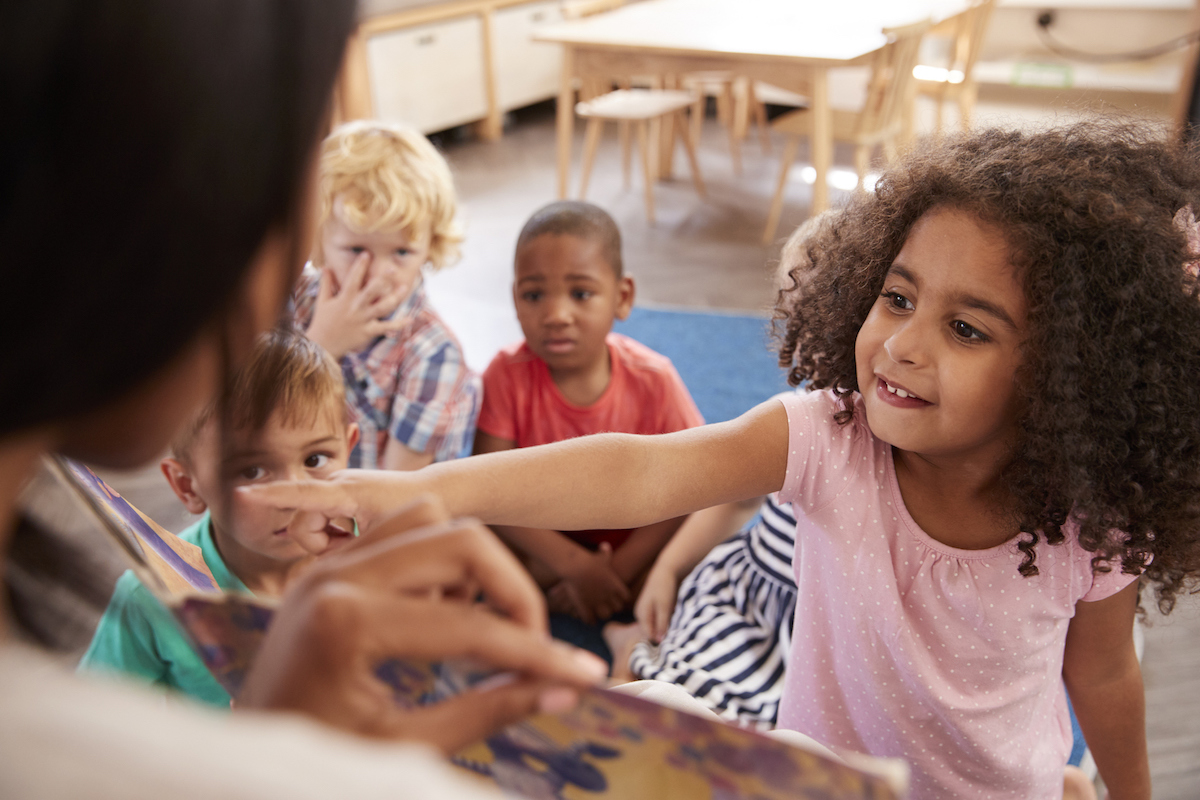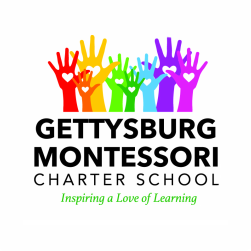The Gettysburg Montessori Charter School fosters independence, confidence, critical thinking abilities and creativity in a warm and welcoming environment. Our hands-on, ‘whole child’ approach supports each student’s unique qualities and individual learning style for a learning experience that’s compelling, effective and fun!
⭐ Hands-on & Innovative Learning Environment
⭐ Experienced Faculty
⭐ Love & Care
⭐ Independent Exploration
⭐ “Whole child” Learning
⭐ Freedom Within Limits
⭐ Grace and Courtesy
⭐ Family and Community Partnerships
⭐ Self-regulation
⭐ Mindfulness
⭐ Intrinsic Motivation
⭐ Sensitivity, Respect, and Compassion
⭐ Low Student-to-Staff Ratio
⭐ After-School Tutoring Club
⭐ Natural Play Areas
⭐ Parent Involvement
Now offering programs from Kindergarten through Grade 6.
Spots are filling up fast, don’t wait!


CEO/Principal
Dr. Faye Pleso
Thank you for taking the time to learn more about Gettysburg Montessori Charter School. Each day at our school is an exciting new opportunity to enrich the minds of our students, and we hope your child will join us.
Gettysburg Montessori Charter School welcomes students regardless of race, gender, national and ethnic origin, and is non-discriminatory in all our policies. We accept children between the ages of 5 and 12 years.
Please contact us regarding availability for your child and to schedule your personal tour of our school. We will be happy to answer your questions and provide additional information about our educational programs.
Kind regards,
Dr. Faye Pleso
CEO/Principal, Gettysburg Montessori Charter School
Our Mission
Gettysburg Montessori Charter School is a K-6 public charter that embodies the theories of Dr. Maria Montessori while promoting a multifaceted, child-centered learning environment for Gettysburg and the surrounding area. Our Montessori trained, PA certified teachers provide children with a dynamic and engaging education using a holistic curriculum that blends the Montessori educational philosophy and the Pennsylvania State Academic Standards. Our mission is to develop the full diversity of human intelligence while nurturing the whole child and instilling a lifelong love of learning.
Our Vision
Our vision is to guide, inspire, and empower children. Our goal is to give them the tools and confidence to achieve their dreams, lead meaningful lives, and make positive contributions as world citizens in the 21st century.
We Value
Hands-on learning environment
Independent exploration
“Whole child” learning
Freedom within limits
Grace and courtesy
Family and community partnerships
Self-regulation
Mindfulness
Intrinsic motivation
Sensitivity, respect, and compassion
Montessori, Traditional, and GMCS Methods
| MONTESSORI METHOD | TRADITIONAL METHOD | GMCS BLENDED APPROACH |
|
Emphasis is on cognitive, social, and emotional development |
Emphasis is on cognitive development |
Emphasis is on cognitive, social, and emotional development |
|
Multi-sensory materials for physical exploration |
Fewer materials for sensory development |
Multi-sensory materials for physical exploration |
|
Environment and method encourage self-discipline and problem-solving strategies |
Teacher is primary enforcer of discipline mostly through forms of punishment. |
School-wide expectations are explicitly taught, modeled, and practiced. Adults support and encourage self-discipline and problem-solving strategies. |
|
Mixed age groups provide the child with a sense of community where children work to help and teach each other. |
Same age grouping |
Mixed age groups provide the child with a sense of community where children work to help and teach each other. Subject specific classes at grades 3 – 6. |
|
Children can work together cooperatively. |
Cooperative grouping is minimal |
Children can work together cooperatively. |
|
Teacher (directress) is a facilitator. |
Teacher is in control |
Blend of direct teacher instruction and teacher as facilitator. |
|
Mainly individual and small group instruction |
Mainly whole group instruction |
We offer a blend of whole group and small group instruction. |
|
Child chooses own work, with encouragement from teacher. |
Set curriculum is structured for the child. |
PA Standards-based curriculum which offers Must Do and May Do activities. |
|
Child can work where he/she chooses, move around, eat snack, and talk when he/she desires, if he/she is not disturbing the work of others. |
Child must usually sit in a chair, not talk to friends, eat only at lunchtime, and work on set work. |
We offer mobility within the classroom, flexible seating, snack, and social times allowed if students are not disturbing the work of others. |
|
Child discovers own concepts from self-teaching (didactic) materials. |
Child is guided to concepts by teacher. |
Blend of teacher-guided instruction and discovery- based exploration |
|
Child may work at own learning pace. |
Instruction pace is set by group norm. |
Instruction pace is set by national norms with differentiation for students to work at own learning pace. |
|
Child has unlimited time to work on a chosen project. |
Child is generally allotted specific time for work on a specific project or assignment. Projects usually chosen by teacher. |
Children are generally allotted specific timeframes for work. Flexibility for specific projects or assignments is often allowed. |
|
Child reinforces own learning by repetition of work with intrinsic feelings of success. Learning is its own reward. |
Learning is reinforced extrinsically by repetition and rewards. Teachers work to motivate the child to learn. |
Child reinforces own learning by repetition of work with intrinsic feelings of success along with teachers motivating the child to learn. |
|
Materials are self-correcting. Child spots own errors from feedback of material. |
If work is corrected, errors usually are pointed out by the teacher. |
Blend of teacher-corrected work and self-correcting materials allowing students to spot their own errors from feedback of material. |
|
Organized program for learning care of self and environment to develop independence. Washing hands, sweeping floor, polishing shoes |
Less emphasis on self-care instruction |
Organized program for learning care of self and environment to develop independence such as washing hands, sweeping floor |
|
Organized program for parents to understand the Montessori philosophy and participate in the learning process |
Voluntary parent involvement |
Voluntary parent involvement |
